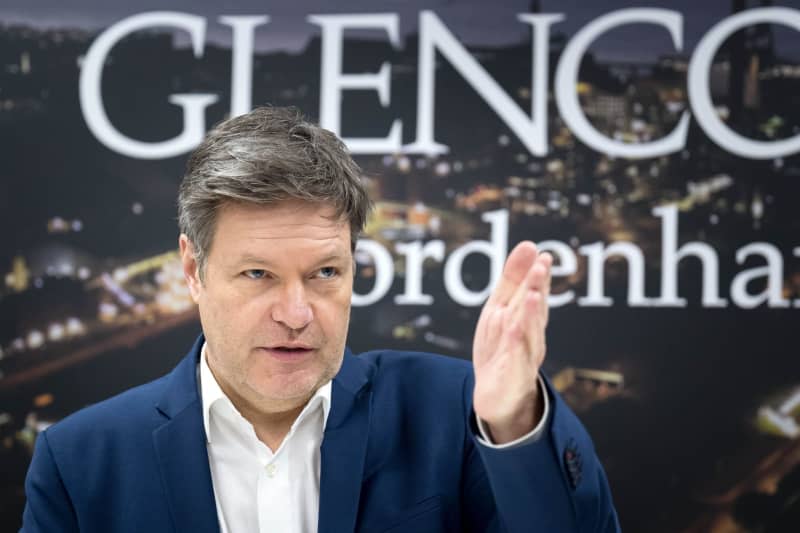German government reaches deal on much-debated power plant strategy

- Oops!Something went wrong.Please try again later.
- Oops!Something went wrong.Please try again later.
- Oops!Something went wrong.Please try again later.
Germany's three-way coalition government has laid an internal dispute to rest by agreeing on a strategy for the construction of new hydrogen-capable gas-fired power plants.
The government led by Social Democrat Chancellor Olaf Scholz has faced criticism from the energy sector for taking too long to map out a way forward for power generation, after Germany's last remaining nuclear power plants shut down in 2023.
The new plants are intended to provide electricity generation during periods when there is little renewable solar and wind power. Bridging those gaps is a major challenge of the planned transition to a carbon-neutral energy system.
Vice-Chancellor and Economy Minister Robert Habeck, a Green Party member, welcomed the deal as an important step toward building a climate-neutral power grid.
"We are making our electricity system fit for the era of renewables and securing the early phase-out of coal," Habeck told dpa on Monday.
The German government's climate plan calls for 80% of the country's electricity to come from renewable energy sources by 2030. Currently, renewables count for just over half.
According to the agreement, the new strategy should create the framework for investments in "modern, highly flexible and climate-friendly" power plants that are capable of running on hydrogen in the future.
In the short term, new power plant capacities totalling 10 gigawatts of hydrogen-capable gas-fired power plants are to be put out to tender.
According to the government, it is to be determined in 2032 when the power plants are to be fully converted to hydrogen between 2035 and 2040. A hydrogen core network is also to be completed by 2032 - a kind of motorway network for transporting hydrogen, most of which will have to be imported.
The new gas-fired power plants are to be located at "system-beneficial" sites. This means that the plants could be built where they are most effective in terms of security of supply.
According to sources within the coalition, the costs will be around €16 billion ($17.2 billion) over about the next 20 years.
The deal calls for creating a scheme to reward energy companies for maintaining power plant generation capacity in the future. The announcement said details of the programme would be decided by the summer.
The agreement also calls for streamlining and accelerating approval procedures for new power plants, and discussing the measures with the European Commission.
Major electricity producers welcomed the deal, with energy giant RWE saying they will participate in the process for tenders for power plants.
The Cottbus-based energy group Leag said it would analyse the impact on the possibility of investing in the construction of hydrogen-capable gas-fired power plants.
The energy companies Uniper and Steag also expressed optimism about the plan.
Monday's announcement came after lengthy negotiations within Scholz's coalition of Social Democrats (SPD), Greens and liberal-conservative Free Democrats (FDP).
Habeck had pressed for major subsidies, while Finance Minister Christian Lindner of the FDP has criticized the potential costs and urged openness to alternative future technologies.
Germany is currently relying in part on coal-fired power plants, which are particularly harmful to the climate, for electricity generation. The government shuttered the country's last remaining nuclear plants last year, and Germany has phased out its previous reliance on Russian gas in the wake of the war in Ukraine.
Current law calls for Germany to phase out coal by 2038, although Scholz's coalition has "ideally" agreed to move that date forward to 2030.
The gas-fired power plants are expected to help enable that move and replace coal-fired plants.


